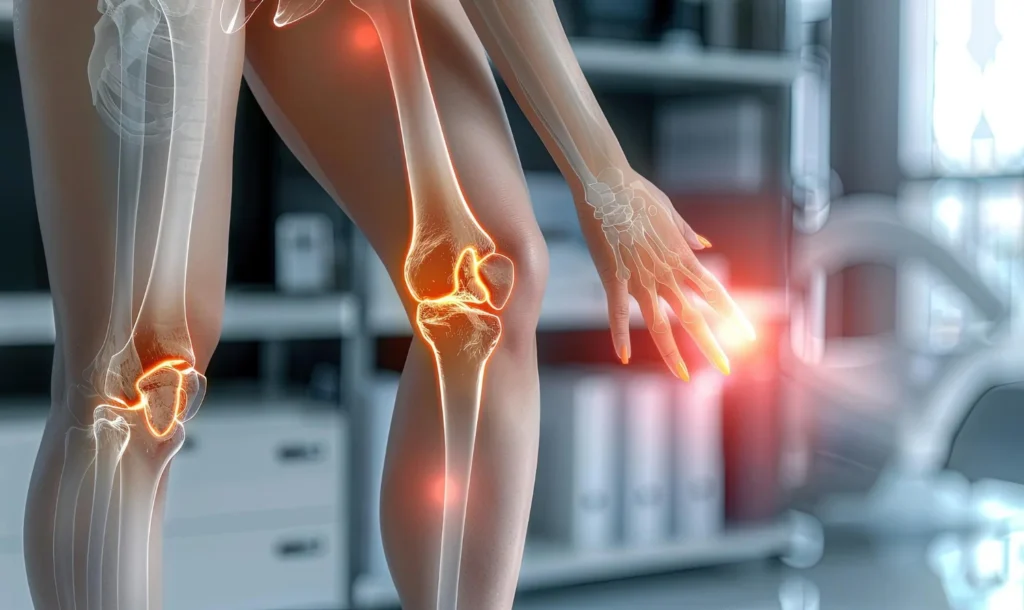5 Daily Habits That Weaken Your Bones – And How to Strengthen Them Naturally

5 Daily Habits That Weaken Your Bones – And How to Strengthen Them Naturally
Your bones are the unsung heroes of your body. They support your every move, protect vital organs, and give structure to everything you do – from walking up stairs to dancing to your favorite song. But while we often pay attention to heart health or fitness, bone health tends to get overlooked until something goes wrong. The truth is, several everyday habits – even the ones that seem harmless – could be slowly chipping away at your bone strength.
The good news? You can take simple, sustainable steps every day to protect and rebuild your bones before problems arise. Let’s explore five common daily habits that could be weakening your bones, and what you can do instead to keep them strong and resilient throughout life.

1. Too Much Sitting, Not Enough Moving
Whether it’s long work hours at a desk, binge-watching your favorite shows, or scrolling through your phone, a sedentary lifestyle takes a real toll on your bones. Bones thrive on movement and pressure – it helps them stay dense and strong. When you sit for too long, your bones miss out on the mechanical stress they need to maintain their structure. Over time, this can lead to weaker bones, especially in the hips and spine, making them more prone to fractures.
How to help:
Make movement a regular part of your routine. Take short walking breaks every hour, stand during phone calls, stretch in between tasks, and choose stairs over elevators. Try to incorporate weight-bearing exercises like walking, dancing, bodyweight squats, or strength training into your weekly schedule. These small changes make a big difference for your bone health over time.
2. Overconsuming Soda and Caffeinated Drinks
Reaching for a fizzy soda or extra-large coffee might feel like a daily pick-me-up, but too much of these drinks can sap your bones of the calcium they need. Many sodas contain phosphoric acid, which can interfere with your body’s ability to absorb calcium. Meanwhile, excessive caffeine causes more calcium to be lost through urine. Replacing milk or other calcium-rich beverages with soda or energy drinks only makes things worse.
How to help:
Start by cutting down your intake of sugary sodas and high-caffeine drinks. Swap out one soda a day for a healthier option like calcium-fortified plant milk, plain water, or herbal teas. Adding lemon or cucumber to your water can give it a refreshing twist without harming your bones.
3. Not Getting Enough Natural Sunlight
Vitamin D plays a key role in helping your body absorb calcium from food, yet it’s one of the most common deficiencies today. Modern indoor lifestyles, working late, or living in areas with limited sunlight can keep your vitamin D levels too low. Without enough of it, your bones can’t get the calcium they need to stay strong, which can eventually lead to brittleness and weakness.
How to help:
Aim for 10 to 20 minutes of natural sunlight exposure each day – preferably in the early morning or late afternoon when the sun isn’t too harsh. Include vitamin D-rich foods like fatty fish (salmon, mackerel), eggs, and fortified dairy or plant-based products in your diet. If necessary, speak to your healthcare provider about taking a vitamin D supplement, especially during darker seasons.

4. Smoking and Heavy Alcohol Use
Smoking doesn’t just harm your lungs – it damages your bones by reducing blood flow and disrupting the cells that rebuild bone tissue. Likewise, drinking too much alcohol interferes with calcium balance and the hormones that help protect bones. Together, these habits increase the risk of fractures and can slow down recovery from bone injuries.
How to help:
If you smoke, seek professional support to quit – it’s one of the best things you can do for your bones (and overall health). Limit alcohol consumption as much as possible. Even small changes, like reducing the number of drinks per week, can have a positive impact on your body’s ability to maintain healthy bone tissue.

5. Poor Dietary Choices
Your bones need more than just calcium to stay healthy – they rely on a combination of nutrients including magnesium, vitamin K, potassium, protein, and more. A diet high in processed foods and salt can cause your body to lose calcium, while a lack of fruits, vegetables, and nutrient-rich foods can prevent bones from getting the nourishment they need.
How to help:
Focus on eating a balanced, whole-food diet that includes:
- Dairy products or fortified plant-based alternatives
- Fatty fish like salmon or sardines
- Leafy greens (spinach, kale, broccoli)
- Nuts, seeds, beans, and lentils
- Eggs and lean proteins
- Cruciferous vegetables like cabbage and cauliflower
- Potassium-rich fruits like bananas, oranges, and avocados
- Avoid overly salty, processed, or junk foods that rob your body of vital nutrients.
Bone health doesn’t suddenly decline overnight – it’s the result of many small decisions made each day. By becoming more aware of the habits that weaken your bones, and replacing them with supportive, bone-friendly alternatives, you can build a stronger foundation for the years ahead. Movement, sunlight, a wholesome diet, and mindful lifestyle choices all contribute to healthier bones and a more active, injury-free life.












